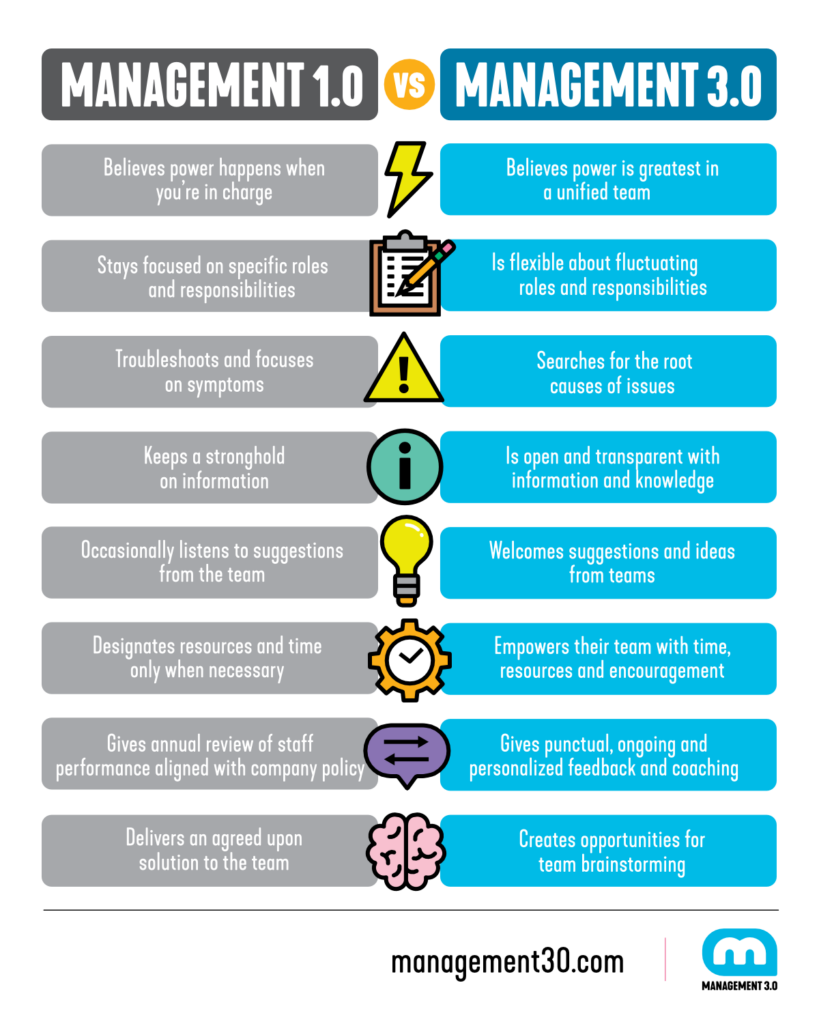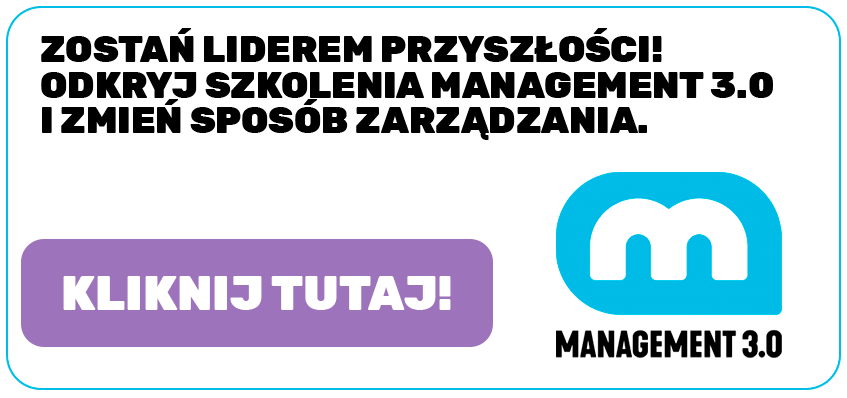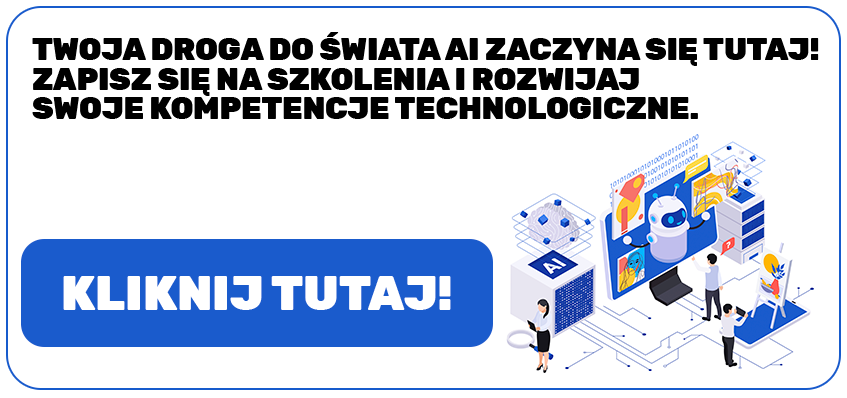In the article below, I will tell you more about the Management 3.0 concept - what it is, how it was created, where it will work best and what its advantages and disadvantages are. And most importantly, is this an approach for every manager or leader?
Foundations of Management 3.0
Management 3.0 is a management concept that revolutionizes the traditional approach to working and managing teams. It was born in response to the growing need for change in traditional management, when it turned out that the current employee management formulas - issuing orders, strict control of work progress, and daily reporting - no longer suffice. They ceased to be effective due to the new digital era dominated by:
- Continuous and dynamic evolution of the organization's priorities and needs,
- Greater demand for creativity and quick problem-solving in the workplace, compared to the previously more frequently expected accuracy and repeatability of activities,
- Finding a balance between private and professional life on the part of employees, when the range of motivators is no longer limited only to the numbers in the bank account, but also - although I don't want to follow stereotypes – the need for understanding, meaning and purpose.
The Management 3.0 approach focuses on flexibility in operation, cooperation between individual employees, and continuous improvement. But above all, it emphasizes creating a work environment that supports creativity, independence and development of employees. In the Management 3.0 concept, the role of a manager and leader differs from the traditional role, as the manager is no longer seen as an infallible ruler and decision-maker, but rather as a partner and advisor. But more on that in a moment.
History Management 3.0
The roots of the Management 3.0 approach date back to the 1990s, and its creator being Jurgen Appelo, a Dutch expert in the field of management and leadership in organizations. Inspired by theories such as Agile, Lean, and complexity theory, Jurgen Appelo, developed a new management philosophy. His vision of Management 3.0 is grounded in trust, autonomy, and employee involvement, which he detailed in his book "Management 3.0: Leading Agile Developers, Developing Agile Leaders," published in 2010. Since then, it has gained popularity as an approach in project and team management, particularly in the following areas.
Application areas of Management 3.0
Management 3.0, as a values-based and employee-oriented approach which has been utilized across various industries and organizations. It proves particularly beneficial for companies operating in dynamic environments where adaptation is key. The tools and techniques offered by this approach allows teams to work more efficiently, make faster decisions and better adapt to changes in the market. It is also worth emphasizing that Management 3.0 is not limited solely to technology companies; it can be be applied across various sectors.
The role of the manager in Management 3.0
Okay, everything is clear. But is this for me as a manager or leader? Is this for us as an organization? I'm answering now.
In the Management 3.0 concept, the manager's role is more collaborative, focusing on supporting the team and creating conditions for effective work. This approach assumes greater employee autonomy and focuses on cooperation and trust as key elements of management. Here are some fundamental elements of the roles of a manager and leader within this concept:
- Co-creating goals: managers do not impose goals from above, but co-create them with the team. They operate on the basis of shared prioritization and goals are flexible to adapt to changing conditions.
- Servant Leadership: The Management 3.0 concept promotes the idea that managers and leaders are there first and foremost to serve the development of people. Their task is to support and help employees achieve their goals, not to impose their authority on them.
- Inspiring: managers in the Management 3.0 concept play the role of inspirers. Their task is to provide inspiration, motivate, and support their employees in achieving their goals. They encourage independent thinking, creativity and innovation.
- Eliminating obstacles: managers work to eliminate obstacles and barriers that may hinder the team's effectiveness. They assist in problem-solving and removing barriers on the path to success.
- Catalyzing: managers in this concept act as catalysts for change and innovation. They encourage experimenting and testing new ideas, and support continuous improvement processes.
- Facilitation: managers act as moderators and mediators, helping to resolve conflicts and build effective relationships between team members.
- Development care: the Management 3.0 concept emphasizes the importance of employees' personal and professional development. Managers act as development supervisors, helping employees develop their skills and careers.
What you, as a manager or leader, will get in return:
- Increased employee engagement: Management 3.0 emphasizes the importance of employee involvement by encouraging cooperation, independence and responsibility; puts emphasis on employee commitment and autonomy, which leads to their higher motivation and creativity.
- Empowerment: Management 3.0 gives employees greater responsibility for their actions and decisions. It also gives them greater freedom in choosing tools and work methods, which obviously affects motivation. Additionally, according to the definition of collective intelligence, it leads to the selection of better tools and solutions.
- Competence development: Management 3.0 assumes continuous development of competences of both leaders and employees. It supports the development of interpersonal skills, project management and other necessary skills.
- Improving communication: Thanks to the tools and practices from Management 3.0, teams communicate more effectively and collaborate with each other.
Coming back to the question “is it for me?”, I would say that Management 3.0 is a concept that all managers and leaders should know about. They should grasp its basics and understand how and when it works so that, based on this knowledge, they can make an informed decision about whether to adopt it. In my ideal world, every manager should be a servant leader who creates an environment for collaborative creative work and development.
And here's a question for you: Maybe you are already such a manager or leader? Look at the graphic below and answer which of the statements are closer to you - those on the right or the left?

Is Management 3.0 right for us as an organization?
Once we've determined whether it's suitable for you as a manager or leader, we can explore whether it's a good fit for your organization and what benefits you could gain. It's important to note that Management 3.0 isn't a one-size-fits-all solution for every company issue. Moreover, introducing Management 3.0 may pose challenges in companies with a traditional management culture, and it may not be suitable for every organization; some industries, such as industrial sectors, may require a more centralized approach to management. However, you can always consider applying this approach to certain parts of the organization where it makes sense and can yield benefits. Here are some advantages at the company level:
- Increased innovation: Management 3.0 fosters creativity and innovation in the organization by encouraging experimentation and the introduction of new ideas.
- Increased efficiency: This concept advocates for team self-organization and decentralized decision-making, resulting in quicker responses to changes and more effective management. Self-organizing teams are typically faster and more effective at generating solutions (reiterating the definition of collective intelligence).
- Greater flexibility: Management 3.0 promotes flexibility and adaptability in the organization, enabling the organization to adjust to shifting market conditions and business environments.
- Improved communication and feedback: Management 3.0 encourages open communication and regular feedback between employees and management, facilitating the identification of problems and prompt responses to them.
- Emphasis on values: This concept is grounded in values such as trust, respect, and responsibility, which help cultivate a positive organizational culture.
Summary
Management 3.0 is an approach to management that equips organizations with the tools to effectively tackle with the challenges of modern business. Thanks to flexibility, trust and commitment of employees, it significantly contributes to increasing the efficiency and innovation of the company. While its implementation can sometimes be difficult, especially in organizations that require time to change their management culture, it is worth taking up the challenge because the benefits are significant. If you want to learn more about Management 3.0 and explore the tools and techniques used in this area, please visit a series of my training courses aimed at managers and agile leaders.






